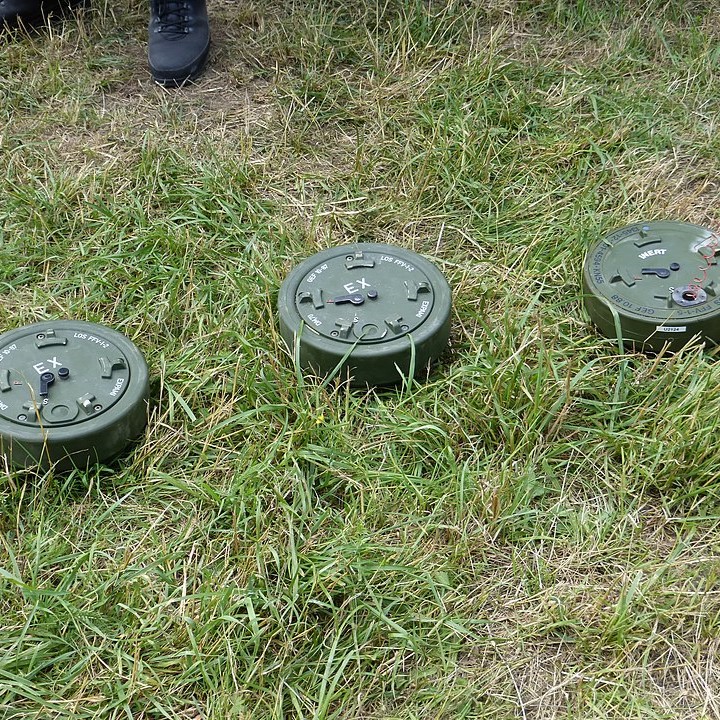
Bionic Planet: Reversing Climate Change by Restoring Nature
We've entered a new epoch: the Anthropocene, and nothing is as it was. Not the trees, not the seas – not the forests, farms, or fields – and not the global economy that depends on all of these. What does this mean for your investments, your family's future, and the future of man? Each week, we dive into these issues to help you Navigate the New Reality.
- Update frequency
- every 23 days
- Average duration
- 50 minutes
- Episodes
- 96
- Years Active
- 2017 - 2025

99 | Mombasa’s Big Ship: Reviving Urban Mangroves by Raising Communities
Support Bionic Planet at patreon.com/bionicplanet
In Episode 99 of Bionic Planet, recorded in Mombasa, Kenya, the focus is on the efforts to revive the coastal mangrove forests that protect the seas…

098 | The Case of the Tangled Titles: Unraveling the Legal Complexities of Land Ownership in the Amazon
Today we’re going to try and help you understand one of the most vexing components of the climate challenge — namely, the overlapping, interlinking, and contradictory land titles that determine contr…

97 | The Mosaic, the Minefield, and a Manifesto
This episode of Bionic Planet is entitled "The Mosaic, the Minefield, and a Manifesto."
T…

096: Encore Presentation: Tim Mohin on Overcoming Information Asymmetry in the ESG Movement
Tim Mohin wrote “Changing Business from the Inside Out: A Tree-Hugger’s Guide to Working in Corporations” back in 2012, after three decades in sustainability — first in government, with the US Enviro…

95 | "Co" Benefits Vs "Core Benefits:" Geoff Mwangi And His Theory Of Change

94 | Zimbabwe's Cannabis Queen, Zorodzai Maroveke, AKA "Dr Zoey"
Dr. Zorodzai Maroveke -- AKA "Dr. Zoey" -- heads the Zimbabwe Industrial Hemp Trust, which is promoting the uptake of industrial hemp as a climate smart alternative to wood, cotton, and plastic.
Hemp…

93 | Zimbabwe's Green Cheetahs, with Chiyedza Heri of the Ubuntu Alliance
Zimbabwean entrepreneur Chiyedza Heri runs the Ubuntu Alliance, a company that's helping farmers leverage carbon finance to shift to more sustainable forms of agriculture.
She's one of more than a do…

92 | COP 28 Article 6: Expectations for Final Day
With just one full day of negotiations remaining, Pedro Venzon and Andrea Bonzanni of the International Emissions Trading Association summarize the remaining issues under Article 6

91 | Article 6 Update from Dubai with Kelley Hamrick Malvar of The Nature Conservancy
Article 6 negotiations, which focus on international carbon markets, remain stalled in Dubai. Kelley Hamrick Malvar of The Nature Conservancy offers a look into the current state of play and the road…

90| George Thumbi: Man of a Million Trees (5th Installment, "Carbon in Kenya")
Kenyan agronomist George Thumbi is helping farmers in the region between Tsavo East and Tsavo West improve their yields and their soil by shifting to agroforestry and other forms of sustainable agric…

89 | How Agroforestry is Reshaping the Kenyan Countryside
This piece, adapted from a piece that first ran in 2016, serves as the fourth installment in our continuing series on carbon finance in Kenya. Today, we look at how carbon finance supports Sustainabl…

88 | The Gospel of REDD+ According to Bees
In part three of our continuing series from Kenya, we hear how the Chyulu Hills REDD+ Project helped people switch from burning trees for charcoal to conserving forests -- the their benefit and the b…

087 | How Ending Deforestation Revived a Major River, Slowed Climate Change, and Saved Lives
Evans Maneno is Makueni County Ecosystem Conservator for the Kenya Forestry Service. He walks us through a tree nursery in the Chyulu Hills and explains how the Chyulu Hills REDD+ Project has reverse…

86 | The Race to Save the Cloud Forests of Kenya's Chyulu Hills
A decade ago, the cloud forests of Kenya's Chyulu Hills were on the brink of collapse, threatening water supplies for the Tsavo and Amboseli Plains — and for the coastal City of Mombasa, 250 kilomet…

085 | Can Ghana Leverage REDD+ to Save its Cocoa Farmers? A conversation with Roselyn Fosuah Adjei of Ghana's Forestry Commission
Ghana's cocoa economy is second only to Côte d'Ivoire's, but climate change threatens to decimate it. Today's guest, Roselyn Fosuah Adjei of the Ghana Forestry Commission, is charged with leveraging …

084 | Treeless Neighborhoods and Poverty: the Deadly Link and How to Address it

083 | What to Make of COP27, with Jos Cozijnsen of Climate Neutral Group
Jos Cozijnsen has been working the climate puzzle for decades -- first by helping to negotiate the Kyoto Protocol and then by helping NGOs like the Environmental Defense Fund craft legal policies wit…

082 | Every Tree on the Planet Mapped, with Sassan Saatchi of NASA's Jet Propulsion Lab.
Under the Paris Climate Agreement, countries must document all of their greenhouse gas emissions and sinks, and that means measuring changes in tree cover. NASA Senior Scientist Sassan Saatchi has sp…

081 | How to Build a Methodology, with Max DuBuisson of Indigo Ag
Just over four years ago, Max DuBuisson took on one of the most difficult challenges you can imagine: namely, spearheading the creation of a new carbon methodoilogy undr both the Verified Carbon Stan…

80 | Forty Years of Sustainability Finance: Making ESG Work
Tim Mohin wrote "Changing Business from the Inside Out: A Tree-Hugger's Guide to Working in Corporations" back in 2012, after three decades in sustainability -- first in government, with the US Envir…